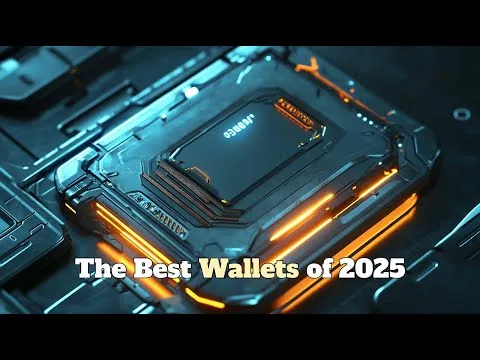Think of growing your crypto wealth not just as making money, but first and foremost as safeguarding the money you already have. In the fast-paced world of cryptocurrency, keeping your digital assets safe is the absolute first step towards any real earning potential. If your coins aren't secure, they can't grow.
Your First Digital Vault: Software Wallets
For beginners, a software wallet is often the easiest starting point. These are apps you download on your phone or computer, like Trust Wallet or Exodus. They're convenient for managing smaller amounts and frequent transactions.
- How it Works: Your crypto isn't actually "in" the wallet; the wallet holds your "private keys," which are like the secret codes that prove you own your crypto on the blockchain. When you use these, your funds move.
- Security Tip: Always set a strong, unique password and enable Two-Factor Authentication (2FA) wherever possible. This adds an extra layer of protection, requiring a code from another device to log in. Think of it as a second lock on your digital door.
Stepping Up Your Security: Hardware Wallets
As your crypto holdings grow, you'll want to consider a hardware wallet, like the Ledger Nano X or Trezor Model T. These are physical devices that keep your private keys entirely offline, away from internet-connected threats.
- How it Works: When you need to make a transaction, you connect the hardware wallet to your computer or phone. You approve the transaction directly on the device, ensuring your private keys never touch the internet.
- Why it's a "Next Step": This is a significant leap in security, especially for larger investments. It's like moving your valuables from a bank safe to a personal, impenetrable vault that only you control physically. While there's an upfront cost, the peace of mind is invaluable.
Beyond Holding: Earning with Confidence (Staking & DeFi)
Once you've mastered secure storage, you can start exploring passive income opportunities. Two popular methods are staking and participating in Decentralized Finance (DeFi).
- Staking: Imagine putting your money in a savings account, but instead of a bank, you're helping secure a crypto network. By "staking" certain cryptocurrencies (like Ethereum or Solana), you lock them up to support the blockchain's operations and, in return, earn rewards. Many hardware wallets can integrate with staking platforms, allowing you to stake your coins without ever moving them off your secure device.
- Decentralized Finance (DeFi): This is a broad term for financial services built on blockchains, like lending, borrowing, and yield farming. While more complex, DeFi can offer higher returns. However, it requires a deeper understanding of the protocols and associated risks. Always use secure wallets (especially hardware wallets) when interacting with DeFi platforms, and start with small amounts. Research is key here; not all DeFi opportunities are created equal.
Essential Crypto Security Pro-Tips:
- Buy Direct: Always purchase hardware wallets directly from the official manufacturer's website to avoid tampered devices.
- Strong Passwords & 2FA: Use unique, complex passwords for all your crypto accounts and enable 2FA on exchanges and software wallets.
- Hide Your Seed Phrase: Your seed phrase (a list of words) is the master key to your crypto. Write it down, store it in a secure, private, offline location, and never share it with anyone.
- Stay Skeptical: Be wary of phishing scams, suspicious links, and promises of unrealistic returns. If it sounds too good to be true, it probably is.
- Diversify & Research: Don't put all your eggs in one basket. Diversify your investments and always do your own thorough research before committing funds to any crypto project or earning method.
Navigating the crypto world, from securing your assets to exploring earning avenues, is like learning to sail; you must first master keeping your boat afloat before you can chase the winds for a faster journey.
